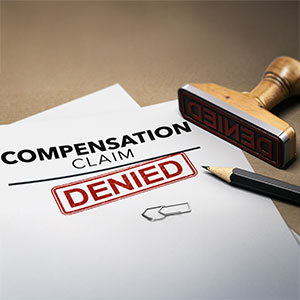Florida’s Future Earning Capacity Reasonable Certainty Standard
Personal InjuryIn Rasinski v. McCoy, (Case Number 5D15-4423), Florida’s Fifth DCA defines the standard necessary to prove a future loss of earning capacity as only requiring a showing of “reasonable certainty.”
Facts Of The Case
Rasinski caused an accident which resulted in an injury to McCoy. McCoy had $10,000 in lost earnings in the past. The jury awarded him $260,000 in future earning capacity losses.
In addition, McCoy had a number of different jobs over the course of his lifetime and was earning approximately $18 per hour as a plumber at the time of the crash. After the accident, he switched to a “desk” job with the same pay and he stated that he was worried about not being able to return to doing labor as a plumber should the economy take a turn for the worse.
Standard Of Recovery
As mentioned above, only “reasonable certainty” is required to prove damages for a future loss of earning capacity, but what does that mean?
The leading Florida Supreme Court case on the issue is Auto-Owners Insurance Company v. Tompkins, 651 So. 2d 89 (Fla. 1995). In that case, the Court also indicated that a plaintiff could be awarded a loss of future earning capacity without necessarily proving that a permanent injury exists although having a permanent injury was considered by the Court as a “significant factor” in establishing reasonable certainty.
Previous cases (Hubbs v. McDonald, 517 So. 2d 68 (Fla. 1st DCA 1987); Long v. Publix Super Mkts., Inc., 458 So. 2d 393 (Fla. 1st DCA 1984)) discussed a showing that the “capacity to labor” must be diminished and that there is a “monetary standard” for which the jury can measure a loss of earning capacity.
The jury should also consider any relevant factors including:
- age
- general health
- habits
- occupation
- social surroundings
- compare earnings before versus after the injury
So What Should A Plaintiff Collect In Future Earning Capacity?
As far as a loss of earning a capacity goes, a plaintiff should clearly be able to collect when they are earning less than they were before the accident. That is the easy one. The harder part (and riskier part) comes in where an injured plaintiff is offered a desk job as an accommodation.
For these “desk job” cases, a plaintiff needs to have evidence that their chances of promotions and bonuses are less than what they would have been but for the re-assignment to a desk job. It is not enough that a plaintiff merely fears that economic circumstances will force them to go back to manual labor because that is a risk that could happen anyway.
In addition, proving that you will not be able to work until retirement age is difficult so long as you can do some sort of job.
In my own cases, I have seen a jury award a loss of future earning capacity, however, the jury limited that recovery to the recovery period for a surgery that the plaintiff was expected to have. This was very reasonable and was actually quite thoughtful of the jury to award.
Since a jury can consider just about anything to reach a “reasonable certainty” standard, your best bet to win your claim for loss of future earning capacity is to find a boss or supervisor who can discuss the typical career paths followed by people with similar credentials. Your boss or supervisor should also be able to speak favorably of your past work experience and say that you were on track for promotions and bonuses but for your injury and subsequent reassignment.
It takes a compassionate boss to do such. You should also keep in mind that your overall credibility as a plaintiff is important as well.
Seek Help With Your Personal Injury Case
There are a lot of moving parts to a Florida personal injury case. Chances are that you will need help to bring the best case that you can put in front of a jury. Contact us today for a free case review with a Lakeland personal injury attorney.


